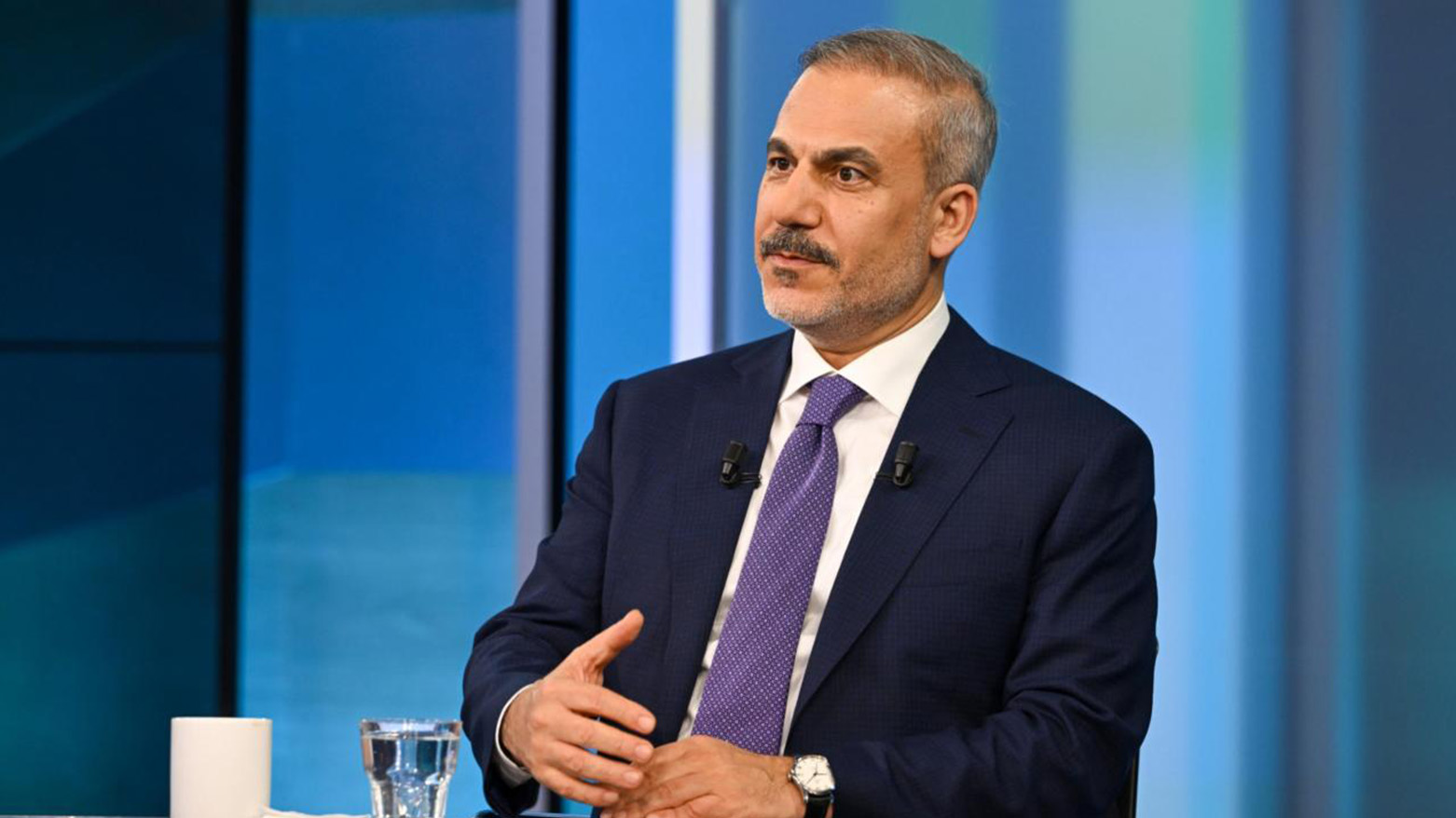Türkiye’s Fidan Urges SDF to Finalize Agreement with Damascus Without Delay
Turkey demands SDF merge with Syrian army per March 10 deal. Fidan insists on Kurdish rights protection in unified Syria, praises US stance. Amid Suwayda clashes, Ankara backs Damascus' neutrality while pushing anti-terror cooperation and state reforms.

ERBIL (Kurdistan24) – Turkish Foreign Minister Hakan Fidan on Thursday called for the immediate integration of the Syrian Democratic Forces (SDF) into the Syrian central command, emphasizing that the group must honor the agreement signed with Damascus on March 10. Fidan’s remarks, delivered during a televised interview with Turkish outlet NTV, come amid a renewed regional push to stabilize Syria’s internal landscape and secure its territorial integrity.
“The armed units under the YPG’s control have not yet dissolved themselves. We expect them to implement the March 10 agreement,” Fidan stated. “We want this issue to proceed within a constructive and positive atmosphere—without bloodshed, without tension, and with the rights, identities, and properties of the Kurds safeguarded in a new Syria where all citizens feel equal.”
Integration Without Preconditions
The Turkish minister underscored the importance of a voluntary and unconditional agreement between the SDF and the Syrian government, cautioning that the continued existence of multiple armed factions under various pretexts is unacceptable.
“If the SDF is seeking guarantees, those concerning rights, freedoms, and security of life and property can be monitored by countries like Türkiye,” Fidan noted. “But justifying the presence of separate armed entities across the country is not acceptable.”
Fidan welcomed recent remarks from U.S. Special Envoy to Syria, Thomas Barrack, in which he denied that Washington had promised statehood to the SDF and affirmed support for the group’s integration into Syria’s security structure. The Turkish minister characterized Barrack’s position as “appropriate,” adding that Ankara acknowledges the legitimacy of Syria’s transitional government under President Ahmed al-Sharaa and supports its stabilization efforts.
Security Cooperation and Institutional Reform
Fidan described prospective cooperation between Ankara and Damascus in the field of security as “normal,” given shared interests in combating terrorism and restoring state institutions.
“Syria needs significant assistance, especially in rebuilding its military and core state institutions,” he said. He also stressed that without the reformation of institutions such as health, education, transportation, and energy, sustainable governance and stability would remain elusive.
The minister reiterated that no armed forces outside the state structure should be allowed to operate, while the state, in turn, should avoid abusing its monopoly on power to repress ethnic or religious communities.
Suwayda Crisis and Regional Stability
Fidan condemned the recent deadly conflict in Suwayda between Druze and Bedouin factions, attributing part of the escalation to Israel’s alleged obstruction of Damascus’s efforts to mediate neutrally.
“We saw movements across the north, south, east, and west of Syria. That’s why we issued a warning,” Fidan said. “We seek the unity and integrity of the country. It is just as wrong to erase identities in the name of unity as it is to use identity politics to set the rest of the country on fire.”
He indicated that parties recently met in Amman and reached partial consensus, though a faction of Druze fighters remained opposed to reconciliation, voicing ambitions for separatism through armed struggle.
According to Fidan, government forces and local police are now stationed in Suwayda under terms agreed to in the Amman talks, while negotiations continue to secure full control and calm.
Positive Signs from Damascus
Fidan praised President al-Sharaa’s inclusive approach, saying the Syrian government must remain neutral in local conflicts, intervene when necessary, and hold perpetrators accountable. He acknowledged that al-Sharaa has demonstrated such intervention “to the extent of his capacity.”
The Turkish official also emphasized the shared vision with regional actors and international powers, including the U.S., aimed at restoring Syrian unity.
“Our concern is to ensure that Syria poses no threat to its neighbors and that no one poses a threat to Syria either,” he said.
US Policy and Regional Diplomacy
Fidan offered rare praise for U.S. policy on Syria, highlighting Barrack’s “balanced” and “independent” approach. He described the American envoy as someone who understands the region’s dynamics and works toward a more constructive vision.
“Within the U.S., we’re now seeing leaders and policymakers who prioritize American interests rather than Israeli agendas,” he added.
Fidan reaffirmed that Türkiye is committed to a process involving the U.S. and regional states to integrate the SDF into Syria’s central military structure and continue the fight against ISIS. Despite distractions caused by the Suwayda crisis, he emphasized that “Türkiye’s strategic agenda has not changed.”
